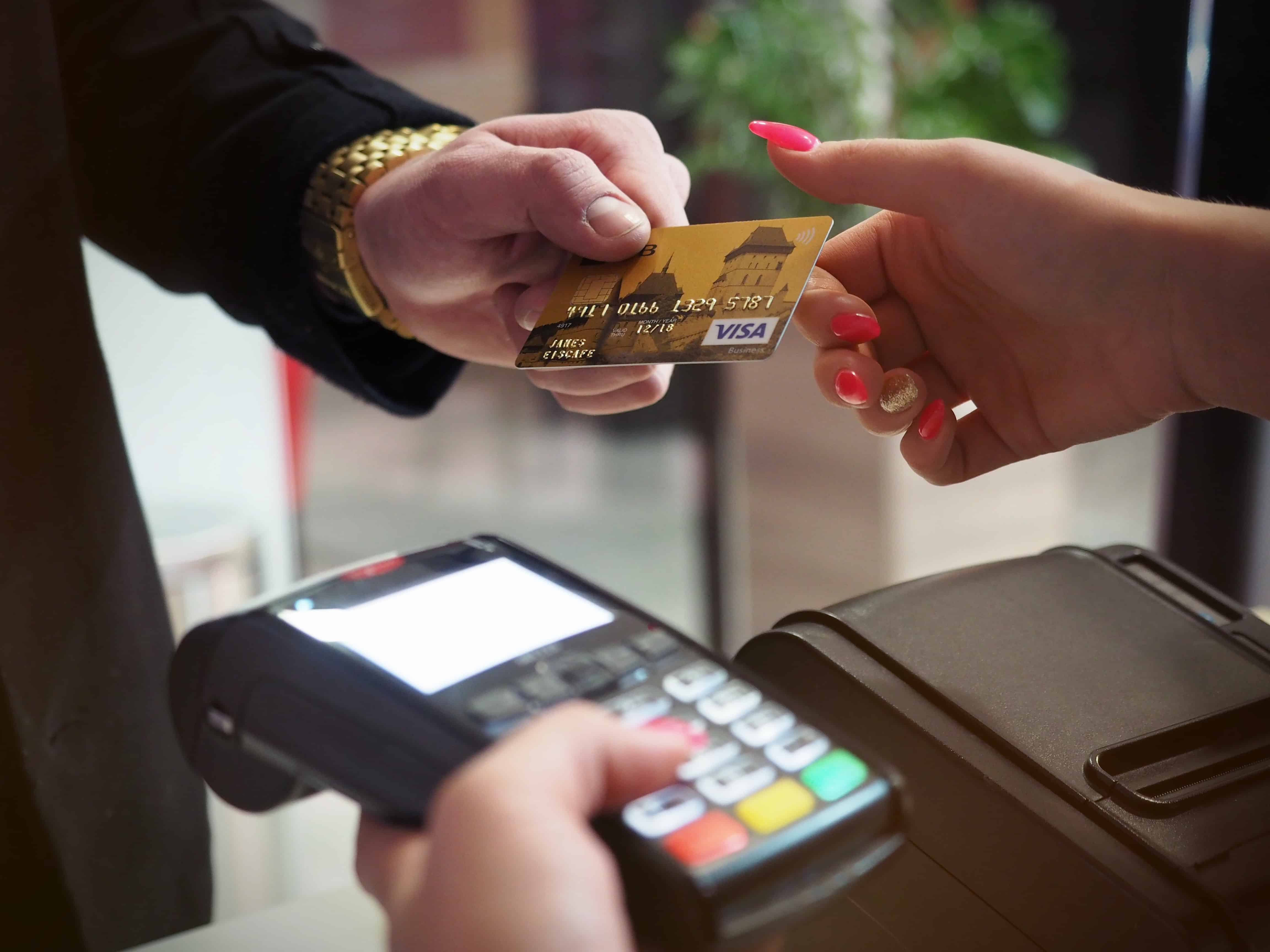
80 Banking and Financial Terms in Spanish
I like to believe love is what moves the world.
But money and finances are in our lives every single day.
Start having conversations, and you’ll quickly learn that knowing Spanish financial terms is incredibly beneficial.
In this post, you’ll learn 80 finance and banking terms in Spanish, with examples.
I’ve also divided the terms into categories and included a list of useful expressions you’ll encounter when using them in real life.
Contents
- Banking and Buying Terms in Spanish
- Business Finance Terms in Spanish
- Stock Market Terms in Spanish
- Useful Expressions Using Banking Terms in Spanish
- Resources to Learn Finance Terms in Spanish
- And One More Thing…
Download: This blog post is available as a convenient and portable PDF that you can take anywhere. Click here to get a copy. (Download)
Banking and Buying Terms in Spanish
| Spanish | English |
|---|---|
| Al por mayor / Al por menor | Wholesale / Retail |
| A precio rebajado | Discounted |
| Artículos de consumo | Consumer goods |
| Artículos de primera necesidad | Basic necessity products |
| Balance | Balance |
| Banco / Banca | Bank / Banking |
| Billete | Bill |
| Caja | Checkout counter |
| Cajero automático | ATM |
| Cobrar | To cash |
| Comercio | Trade |
| Compañía | Company |
| Cuenta bancaria | Bank account |
| Cuota | Fee |
| Deuda | Debt |
| Dólar | Dollar |
| Economía | Economy |
| Euro | Euro |
| Impuestos | Taxes |
| Libra | Pound |
| Libre de impuestos | Duty-free / tax-free |
| Moneda | Coin / currency |
| Pagar | To pay |
| Precio | Price |
| Salario | Salary |
| Vender / Venta | To sell / Sale |
Example sentences:
No vendemos al por mayor.
(We do not sell wholesale.)
Me encanta el sector de la venta al por menor.
(I love the retail industry.)
Allí venden libros a precios rebajados.
(They sell discounted books over there.)
Hay mucho contrabando de artículos de consumo.
(There is a lot of consumer goods smuggling.)
El azúcar y la harina son artículos de primera necesidad.
(Sugar and flour are basic necessity products.)
Necesito comprobar el balance de mi cuenta.
(I need to check my current account balance.)
¿Hay algún banco por aquí?
(Is there any bank around here?)
Hoy vamos a hablar de la banca privada.
(Today we are going to talk about private banking.)
¿Podría cambiarme este billete de 20 euros por dos billetes de 10?
(Could you please change this 20 euro bill for two 10 euro bills?)
Por favor, pague en la caja.
(Please, pay at the checkout counter.)
Necesito sacar dinero del cajero automático.
(I need to withdraw money from the ATM.)
Me gustaría cobrar este cheque, por favor.
(I would like to cash this check, please.)
Deberían ampliar la zona de libre comercio.
(They should expand the free trade zone.)
Tengo una pequeña compañía de seguros.
(I have a small insurance company.)
Necesito su número de cuenta bancaria, por favor.
(I need your bank account number, please.)
La cuota mensual es de 9,99 $.
(The monthly fee is $9.99.)
Tenemos que liquidar esta deuda lo antes posible.
(We must satisfy this debt as soon as possible.)
Necesito comprar dólares antes del viernes.
(I need to buy dollars before Friday.)
La economía familiar está cada vez peor.
(The family economy is getting worse and worse.)
Me quedan tan solo 17 euros.
(I only have 17 euro left.)
A nadie le gusta pagar impuestos.
(Nobody likes paying taxes.)
He comprado una libra de queso.
(I have bought a pound of cheese.)
Necesito comprar libras.
(I need to buy some pounds.)
He podido invertir dinero libre de impuestos.
(I have been able to invest money tax-free.)
Tengo tres monedas en mi cartera.
(I have three coins in my wallet.)
La moneda de Portugal es el Euro.
(The currency of Portugal is the Euro.)
Tenemos que pagar el alquiler antes del domingo.
(We have to pay the rent before Sunday.)
Esta camisa tiene un precio muy alto.
(This shirt has a very high price.)
Tengo un salario fijo más una comisión.
(I have a fixed salary plus a commission.)
La acción de vender algo se llama venta.
(The action of selling something is called a sale.)
Business Finance Terms in Spanish
| Spanish | English |
|---|---|
| A la orden de | By order of |
| Contribuyente | Taxpayer |
| Déficit | Deficit |
| Entrada de dinero | Inflow of money |
| Exportar / Exportación | To export / Export |
| Giro de dinero | Money order |
| Importar / Importación | To import / Import |
| Ingresos | Income |
| Liquidez | Liquidity |
| Préstamo | Loan |
| Presupuesto | Budget |
| Propiedad | Property |
| Saldo | Account balance |
| Sucursal | Branch |
| Tasa | Fee |
| Transacción | Transaction |
Example sentences:
El cheque fue extendido a la orden del beneficiario.
(The check was issued by order of the payee.)
El contribuyente recibirá la carta en cinco días.
(The taxpayer will receive the letter in five days.)
España debe reducir el déficit anual.
(Spain has to reduce its annual deficit.)
La principal entrada de dinero de mi negocio proviene de donaciones.
(The main inflow of money for my business comes from donations.)
Hemos comenzado a exportar aceite de oliva.
(We have started exporting olive oil.)
La exportación de aceite de oliva se ha triplicado.
(Olive oil export has tripled.)
Tengo que enviar este giro de dinero por correo.
(I have to send this money order by mail.)
No podemos importar más de lo que podemos comprar.
(We cannot import more than we can buy.)
La importación ilegal está en alza.
(Illicit import is on the rise.)
La principal fuente de ingresos de España es el turismo.
(Spain’s main source of income is tourism.)
La venta le añadirá liquidez al mercado.
(The sale will add liquidity to the market.)
Necesito un préstamo para comprar un coche nuevo.
(I need a loan to buy a new car.)
Tenemos que ajustarnos al presupuesto original.
(We need to stick to the original budget.)
Me gustaría vender mi propiedad.
(I would like to sell my property.)
Me gustaría saber por qué han congelado el saldo de mi cuenta.
(I would like to know why my account balance has been frozen.)
Este banco tiene sucursales por todo el mundo.
(This bank has branches all over the world.)
No se olvide de pagar la tasa cuando se registre.
(Do not forget to pay the fee when you register.)
La transacción se ha realizado correctamente.
(The transaction has been carried out correctly.)
Stock Market Terms in Spanish
| Spanish | English |
|---|---|
| Acción / Accionista | Share / Shareholder |
| Activos y pasivos | Assets and liabilities |
| Bienes | Assets, property |
| Bolsa | Stock market |
| Bono | Bond |
| Capital | Capital |
| Financiación | Funding |
| Fondo de inversiones | Investment fund |
| Ganancias | Profit |
| Garantía | Collateral, backing |
| Inflación | Inflation |
| Mercado | Market |
| Oferta y demanda | Supply and demand |
| Porcentaje | Percentage |
| Quebrar / Quiebra | To go bankrupt / Bankruptcy |
| Bancarrota | Bankruptcy |
| Tipo de cambio | Exchange rate |
| Valores del Estado | Government securities / bonds |
Example sentences:
El accionista compró 50 acciones a 30 dólares cada una.
(The shareholder bought 50 shares for $30 each.)
Deberías añadir los activos y pasivos al informe.
(You should add the assets and liabilities to the report.)
Probablemente el banco embargará todos mis bienes.
(The bank will probably seize all my assets.)
Es un momento muy malo para invertir en bolsa.
(It is a very bad moment to invest in the stock market.)
Los bonos corporativos no son arriesgados.
(Corporate bonds are not risky.)
No tengo capital suficiente para empezar un negocio.
(I do not have enough capital to start a business.)
Necesitamos financiación del gobierno central.
(We need funding from the central government.)
Ese fondo de inversiones es privado.
(That is a private investment fund.)
Las ganancias de la compañía son más altas este año.
(The company’s profit is higher this year.)
Tendremos que usar nuestra casa como garantía para el préstamo.
(We will have to use our house as collateral for the loan.)
El aumento del precio del petróleo ha sido debido a la inflación.
(The increase in the price of oil has been due to inflation.)
El mercado mundial está en peligro en la actualidad.
(The global market is currently in danger.)
La oferta y la demanda de teléfonos móviles afecta directamente a su precio de venta.
(The supply and demand of cell phones directly affects their selling prices.)
Solo debe invertir un pequeño porcentaje de sus ganancias.
(You should only invest a small percentage of your profit.)
Muchos negocios quiebran en invierno.
(A lot of businesses go bankrupt during the winter.)
La quiebra es lo peor que le puede pasar a una empresa.
(Bankruptcy is the worst that can happen to a company.)
La explosión de la burbuja inmobiliaria ha supuesto la bancarrota para mi negocio.
(The burst of the property bubble has led to the bankruptcy of my business.)
Los riesgos por tipo de cambio son algo muy normal en estos tiempos de crisis.
(Exchange rate risks are very common in these times of crisis.)
Le recomiendo invertir en valores del Estado.
(I recommend that you invest in government bonds.)
Useful Expressions Using Banking Terms in Spanish
¿Dónde hay / Dónde puedo encontrar…
(Where is / Where can I find…)
- Un banco
(A bank) - Un cajero
(An ATM) - Una oficina de cambio
(An exchange bureau)
Necesito / Me gustaría…
(I need to / I would like to…)
- Abrir una cuenta
(Open a bank account) - Cambiar dinero
(Exchange currency) - Sacar dinero de mi cuenta
(Withdraw money from my bank account) - Transferir dinero
(Transfer money) - Ingresar…
(Deposit…) - Solicitar una tarjeta de crédito
(Apply for a credit card) - Cancelar mi tarjeta de crédito
(Cancel my credit card) - Enviar dinero
(Send money) - Solicitar un préstamo / crédito
(Apply for a loan) - Pagar mi deuda / mis impuestos
(Pay off my debt / my taxes) - Cobrar este cheque / mi nómina
(Cash this check / my payroll check) - Hablar con el director
(Speak to the bank manager)
Su cuenta está en números rojos.
(Your bank account is in the red.)
¿Podría decirme el saldo de la cuenta, por favor?
(Could you tell me what my current account balance is, please?)
¿A cómo está el cambio?
(What is the current currency exchange?)
¿Podría cambiarme este billete?
(Could you please change this bill?)
¿Cuáles son las tasas de interés?
(What are the current interest rates?)
Resources to Learn Finance Terms in Spanish
If you still think you could use some more financial vocabulary, take a look at these resources:
- CFPB’s “Glossary of English-Spanish Financial Terms.” Learn a lot about consumer financial markets.
- “English to Spanish Dictionary of Finance Terms.” I personally love this one for being so user-friendly!
- “World Bank Glossary.” This resource allows you to find any financial term you can ever imagine.
- “Glossary of Economics and Trade.” From Babel Linguistics, this is an excellent concise resource for less advanced learners.
- FluentU. To practice using financial terms, you can create flashcards to help you learn them with an app like FluentU.
FluentU takes authentic videos—like music videos, movie trailers, news and inspiring talks—and turns them into personalized language learning lessons.
You can try FluentU for free for 2 weeks. Check out the website or download the iOS app or Android app.
P.S. Click here to take advantage of our current sale! (Expires at the end of this month)

I know finances may not sound like the most interesting topic in the world, but as a Spanish learner, you should know a little bit of everything.
Whether you’re going to work abroad or travel to Spain or Latin America, you’re definitely going to need a lot of these words.
And now that you’re finished, download the PDF version of this post, print it and have it with you at all times. You never know when the investment opportunity of a lifetime may arise!
Download: This blog post is available as a convenient and portable PDF that you can take anywhere. Click here to get a copy. (Download)
And One More Thing…
If you've made it this far that means you probably enjoy learning Spanish with engaging material and will then love FluentU.
Other sites use scripted content. FluentU uses a natural approach that helps you ease into the Spanish language and culture over time. You’ll learn Spanish as it’s actually spoken by real people.
FluentU has a wide variety of videos, as you can see here:

FluentU brings native videos within reach with interactive transcripts. You can tap on any word to look it up instantly. Every definition has examples that have been written to help you understand how the word is used. If you see an interesting word you don’t know, you can add it to a vocab list.

Review a complete interactive transcript under the Dialogue tab, and find words and phrases listed under Vocab.

Learn all the vocabulary in any video with FluentU’s robust learning engine. Swipe left or right to see more examples of the word you’re on.

The best part is that FluentU keeps track of the vocabulary that you’re learning, and gives you extra practice with difficult words. It'll even remind you when it’s time to review what you’ve learned. Every learner has a truly personalized experience, even if they’re learning with the same video.
Start using the FluentU website on your computer or tablet or, better yet, download the FluentU app from the iTunes or Google Play store. Click here to take advantage of our current sale! (Expires at the end of this month.)












